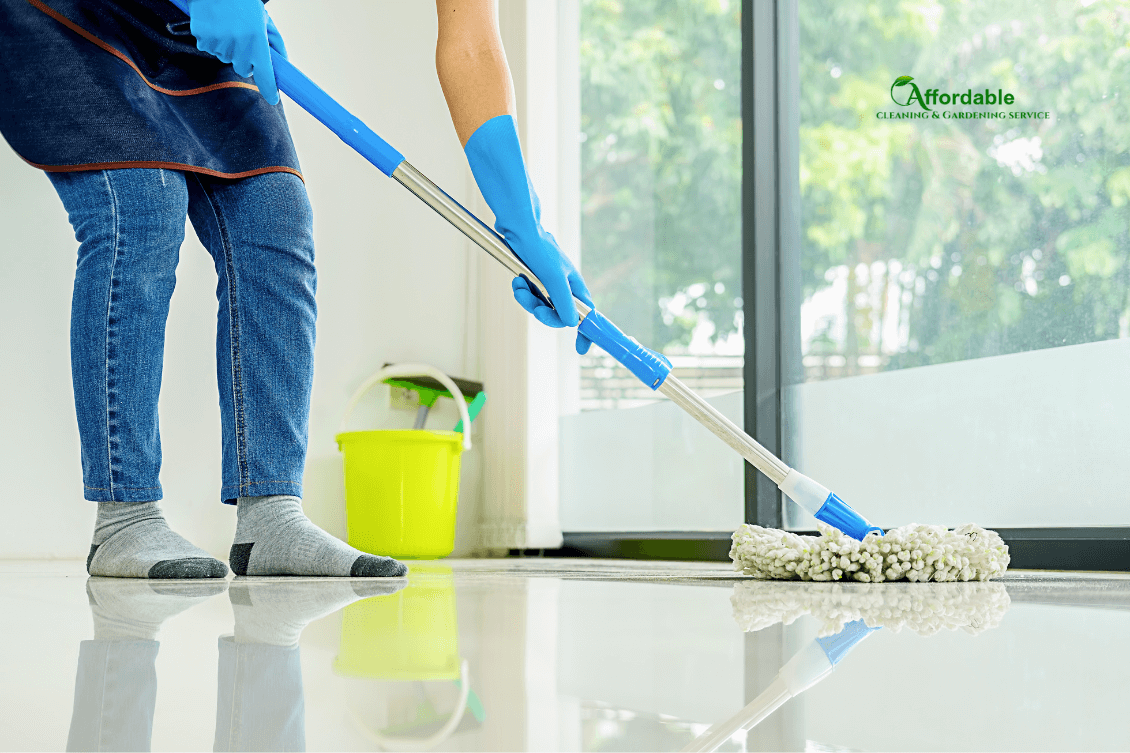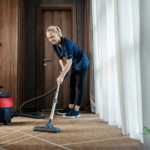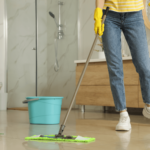Dealing with hard water stains can be a real nuisance for homeowners. You often find them in bathrooms and kitchens. These stains usually take place due to mineral deposits like calcium and limescale. When hard water dries, it will leave behind such stains. Over time, these stains can become increasingly difficult to remove. It can make your tile surfaces look dull and dingy as well. That’s where you will come across the need to remove hard water stains from tiles.
But fear not! There are several effective methods for removing hard water stains from tiles. They range from natural cleaning solutions to commercial products. In this ultimate guide, we’ll cover everything you need to know about tackling hard water stains. You can learn from the causes to the best cleaning techniques.
Table of Contents
Understanding Hard Water Stains
Before we dive into the cleaning methods, let’s first understand what causes hard water stains. Hard water contains high levels of dissolved minerals. The two main minerals include calcium and magnesium. When this water evaporates or dries, it leaves behind a chalky. This is something common on surfaces like tiles, shower doors, sinks, and bathtubs.
These calcium deposits and limescale stains can be challenging to remove. That’s because they bond strongly to the tile surface. They can become more stubborn over time if left unchecked. Such stains can even etch into the tile and cause permanent damage.
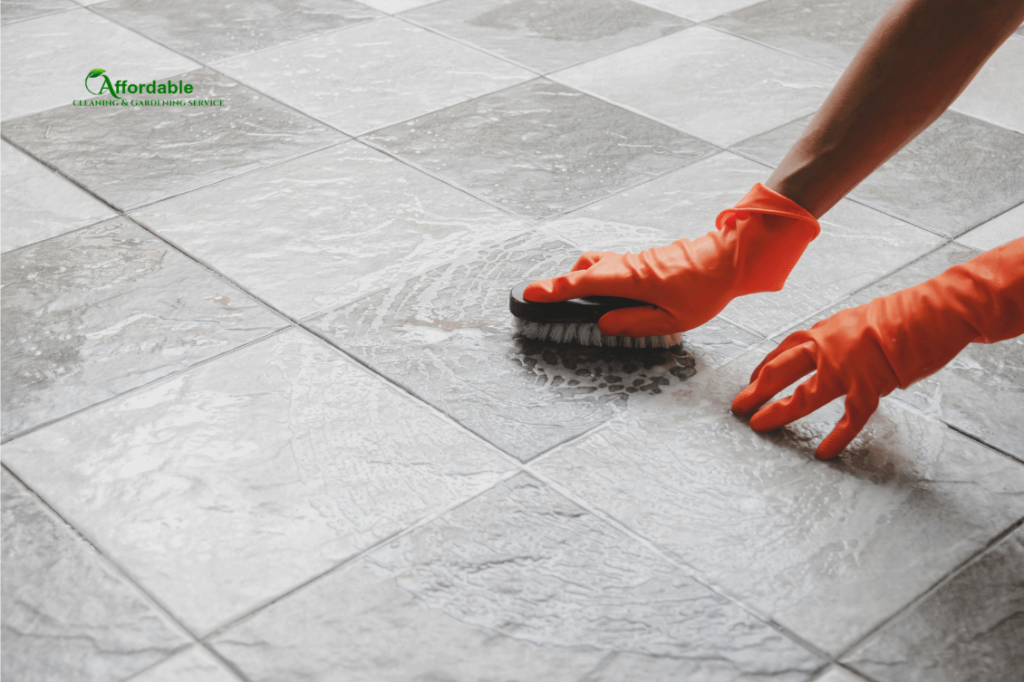
Natural Cleaning Methods
There are several natural cleaning solutions that can effectively remove hard water stains from tiles. If you prefer natural cleaning methods for tile cleaning and limescale removal, you should go for them. These methods are not only eco-friendly but also cost-effective. That’s because they use common household items.
#1 Vinegar Cleaning
Vinegar is a versatile and powerful cleaning agent. It can dissolve mineral deposits and break down hard water stains. Here’s how to use it for tile or bathroom cleaning.
- Mix equal parts white vinegar and warm water in a spray bottle.
- Spray the solution directly onto the stained tiles and let it sit for several minutes.
- Use a scrub brush or a non-abrasive sponge to scrub the stains.
- Rinse the area with clean water and wipe dry.
Tip: For stubborn stains, you can create a vinegar paste by mixing vinegar with baking soda. Apply the paste to the stained area and let it sit for a few minutes. Then you can scrub it away. This method is ideal when dealing with sink stains or shower stains. Hence, you don’t have to think twice before using it for tile cleaning.
#2 Baking Soda Cleaning
Baking soda is another natural cleaning powerhouse available. It can effectively remove hard water stains. Here’s how to use it:
- Make a paste by mixing baking soda and water in a bowl.
- Apply the paste to the stained tiles and let it sit for 5-10 minutes.
- Use a scrub brush or a non-abrasive sponge to scrub the stains.
- Rinse the area with clean water and wipe dry.
Tip: For extra cleaning power, you can add a few drops of lemon juice or vinegar to the baking soda paste. This is highly effective when removing mineral buildup and calcium deposits. If you are cleaning hard water stains in the kitchen, you must use these natural cleaning methods. That’s because they will not contaminate the food you prepare in the kitchen.
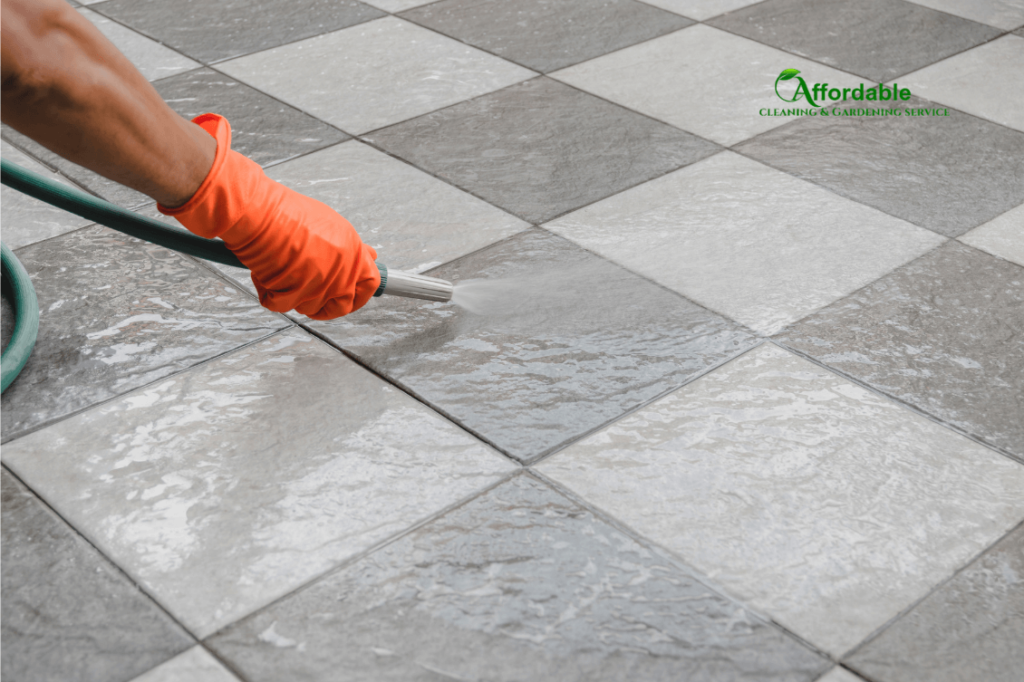
Commercial Cleaning Products
If natural cleaning methods don’t seem to be cutting it, you may need to turn to commercial cleaning products. However, you should look for cleaning products designed for hard water stain removal. Here are some popular options:
#1 Acid-Based Cleaners
Acid-based cleaners are the ones containing phosphoric or sulfamic acid. They can effectively dissolve calcium deposits and limescale buildup. However, you should use these products with caution. That’s because they can be harsh and may damage certain types of tiles or grout if not used properly.
#2 Alkaline Cleaners
Alkaline cleaners contain substances like sodium hydroxide or potassium hydroxide. They can also effectively remove hard water stains. These products work by breaking down the mineral deposits through chemical reactions. You can use them for grout cleaning and tile maintenance as well.
#3 Enzymatic Cleaners
Enzymatic cleaners use enzymes to break down organic matter and mineral deposits. It makes them a gentler option for removing hard water stains. These products are often environmentally friendly and safe for use on most tile surfaces.
When using commercial cleaning products, you should always follow the manufacturer’s instructions. Moreover, you need to wear appropriate protective gear like gloves and goggles.
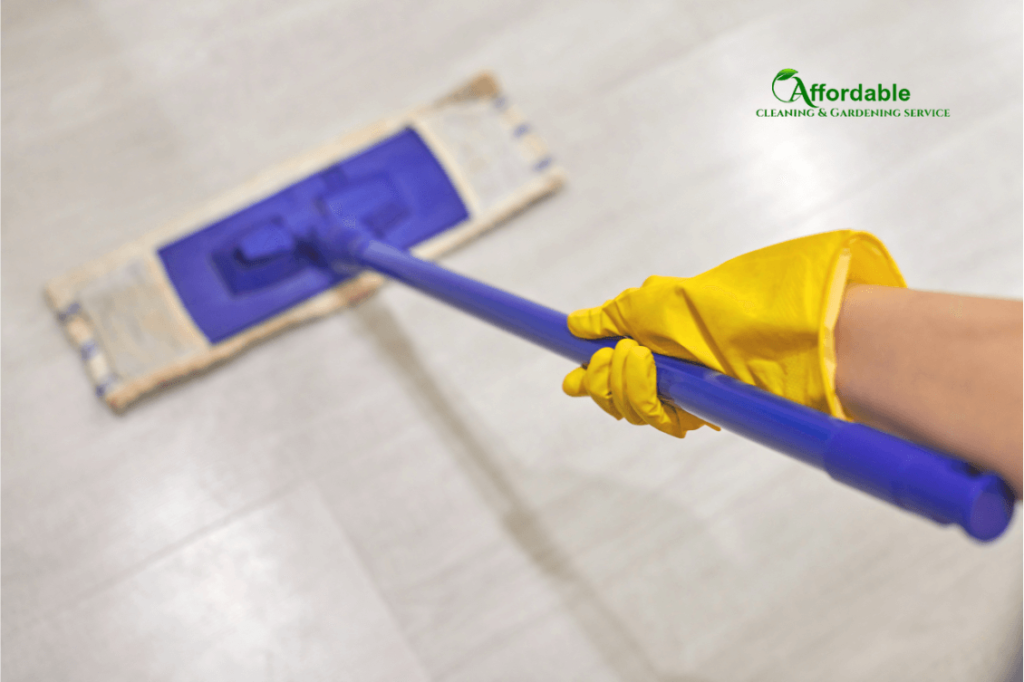
Grout Cleaning
Hard water stains can also accumulate in the grout lines between your tiles. As a result, it can make grout surfaces look discoloured and unsightly. To effectively clean grout, you can use a grout brush or an old toothbrush. Then you can scrub the stained areas with your chosen cleaning solution.
For stubborn grout stains, you may need to use a specialised grout cleaner. Or else, you should consider re-grouting the affected areas if the stains are too deeply set.
Tile Maintenance and Prevention
You need to tackle hard water stains when they occur. However, the best approach is to prevent them from forming in the first place. Here are some tips for maintaining your tiles and minimising future hard water stain buildup.
#1 Wipe Down After Use
After every shower or bath, make it a habit to wipe down your tile surfaces. You can use a squeegee or a dry cloth for wiping down. This simple step can prevent water from drying and leaving behind mineral deposits.
#2 Use a Water Softener
Installing a water softener system in your home can reduce the mineral content in your water supply. This is effective when preventing hard water stains from forming on your tiles and other surfaces.
#3 Seal Your Tiles
Sealing your tiles with a high-quality sealant can create a protective barrier. This barrier makes it harder for mineral deposits to adhere to the surface. It can make cleaning and maintenance much easier in the long run.
#4 Regular Cleaning
You must also establish a regular cleaning routine. It can help prevent hard water stains from setting in and becoming more difficult to remove. Be sure to use appropriate cleaning solutions for all household cleaning activities. One of the best cleaning tips to follow is to scrub gently to avoid damaging your tiles or grout.
By following these maintenance and prevention tips, you can keep your tiles looking clean and fresh. As a result, you can make them look perfect for many years to come as well.
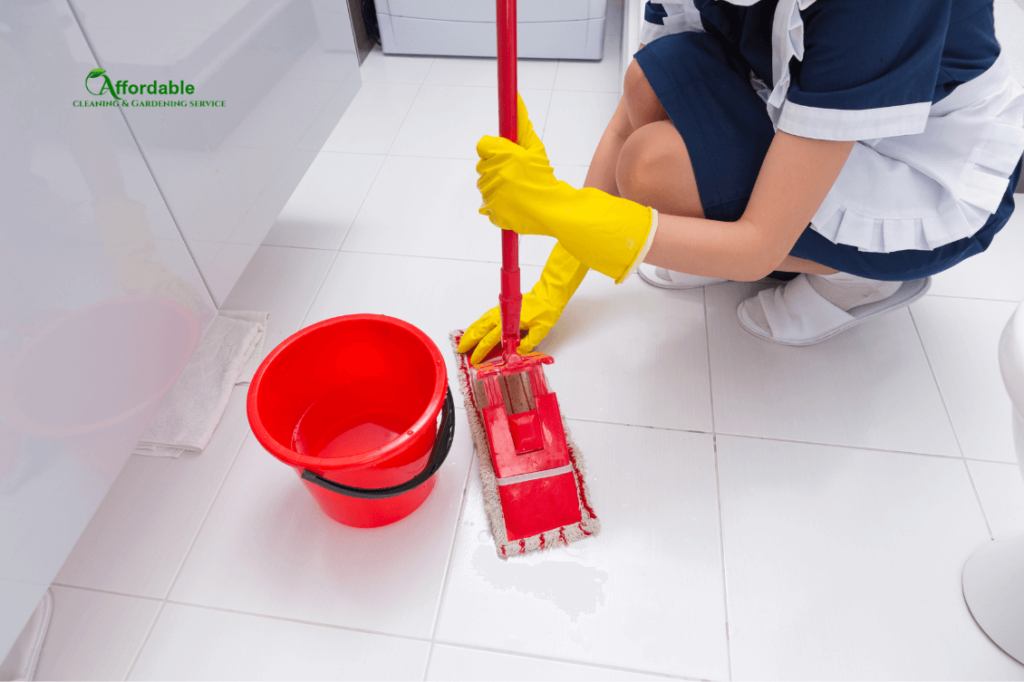
Final Words
Hard water stains can be a frustrating problem. But with the right cleaning methods and a proactive approach, you can effectively tackle them. Along with that, you can maintain the beauty of your tile surfaces. You have the freedom to opt for natural cleaning solutions like vinegar and baking soda. Or else, you may also use commercial cleaning products. No matter what, the key is to act promptly when cleaning stains. Then you can make sure that the stains will not settle deeply on the surfaces. By following this guide, you can follow the different ways we shared.
Remember, prevention is the best approach. Hence, be sure to wipe down your tiles regularly. You should also consider a water softener system and seal your tiles. This will help you to create a protective barrier against mineral buildup. With a little effort and the right techniques, you can keep your tiles looking stain-free for years to come.
But you may sometimes need expert help removing hard water stains from tiles. That’s where our team at Affordable Cleaning and Gardening Services can help you. When you fail to remove the yellow stains, just give us a call. It is one of the most common requests we get. We will look into every surface of your home and clean it with care. They include porcelain ceramic floors and walls as well. By getting our expertise regularly, you can maintain your house streak-free at all times.

